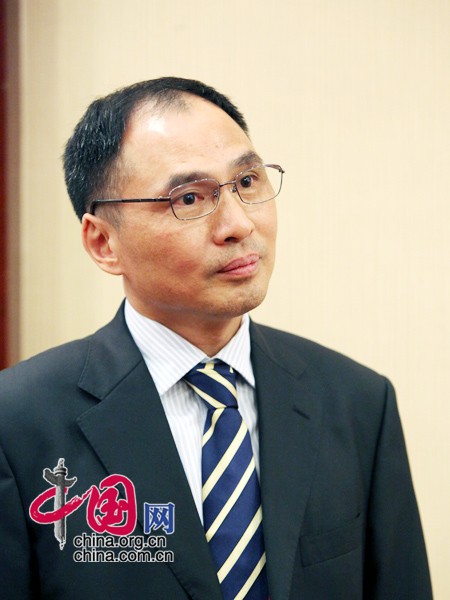Globalization and weak government
- By Zheng Yongnian
 0 Comment(s)
0 Comment(s) Print
Print E-mail China.org.cn, May 13, 2012
E-mail China.org.cn, May 13, 2012
Under the impact of economic globalization, the West is undergoing a serious political crisis. After the fall of the Soviet Union, a sentiment of optimism has prevailed among Western countries. So came Francis Fukuyama's "The End of History and the Last Man," which believed that democratic politics based on free capitalist economy is the best political system man can find. Nowadays, very few people still mention Fukuyama's work. Instead, Western academics and politicians have become more pessimistic. Under the wave of globalization, governments, whether democratic or authoritarian, have all been constantly weakened. Weak government has become a global trend.
|
|
|
File photo of Zheng Yongnian, director of the East Asian Institute of the National University of Singapore |
How did globalization weaken the government of the sovereign state? Globalization occurred first in the West. So the problems aroused there are representative. As early as 1980s, many Western scholars had noticed the effects of economic globalization on the sovereignty of the country. Indeed, economic factors, like the degradation of the business ethics, reduction of job opportunities and tax, have been undermining the government of a sovereign state. In addition to the economic factors, the transformation of Western democracy is further crippling state sovereignty.
Historically, Western-style democracy has gone through three major transformations, with each transformation weakening the government instead of empowering it.
The first wave of Western democratization witnessed the rise of a strong capitalist class. In this stage of capitalist democracy, the government and capitalists worked harmoniously to exploit workers.
The second wave of Western democratization was powered by the working class. In order to increase profits, the capitalists expanded their markets vigorously. A large working class or proletariat emerged as a byproduct to this. They began to demand for sharing power with capitalists, improving working conditions and raising wages. As a result, the government began to separate from the capital and play a more neutral role between the capitalist and working classes. The separation also led to the establishment of government's regulatory regime over the economy.
The third wave of western democratization is mass democracy. The bourgeoisie created a working class. As the working class participated in the management of state affairs, mass democracy in Western countries became inevitable. With various social groups, including women and ethnic minorities entering into the political process, the popularization of democracy is complete, at least theoretically. Indeed, a lot of rights, especially political rights, are achieved through the democratization process.
However, two points should be noted.
First, many rights granted to people, especially economic and social rights, have been achieved prior to democratization. Historical experience shows that the state system should be built prior to the mass democratization stage. After the country enters the mass democratization stage, establishing a state system becomes much more difficult. Though democratization can generate tremendous political energy which may effectively destroy the existing political system, it is generally not effective in the construction of a new system.
Secondly, rights granted by democratic states mostly concern theoretical and legal freedoms. Democratic politics emphasizes principles of equality, freedom and participation. But it doesn't mean these rights can be realized automatically after the realization of a democratic political system. Conversely, democracy is a system which uses theoretical and legal equality to cover up a country's vast inequalities.
Mass democracy has had a tremendous impact on Western politics and economics. In the welfare state, the negative impacts of mass democracy on the economy have become increasingly evident. To gain votes, the Western politicians continue to promise high degree of welfare to their constituents regardless whether the national economy can afford the welfare burden. Since most social groups cannot see the long term benefits of policy changes, they are reluctant to sacrifice their interests. High welfare expectations are one cause of the recent euro zone crisis.
Under mass democracy, it's difficult to establish a strong government, especially in an era of globalization. By now, Western democracy has developed into a system under which no parties agree with each other. This reflects the conservative nature of democracy. When all related groups are mobilized, if they are well-matched in strength, no side can gain a majority.
Globalization, capital outflows, underemployment, excessive welfare, and weak government are the causes of Western economic and political imbalances. These problems altogether indicates that the Western economic and political systems are calling for a new round of reform and restructuring. For the West, the core concern is to rebuild the state power. However, it is highly unlikely to achieve when all the groups involved are against each other.
The author is the Director of the East Asian Institute of the National University of Singapore.
(The article was first published in Chinese and translated by Li Huiru)
Opinion articles reflect the views of their authors, not necessarily those of China.org.cn.







Go to Forum >>0 Comment(s)